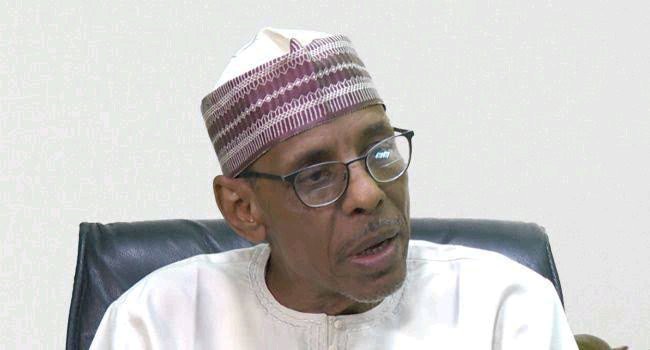According to a report by Daily Post, prominent Northern elder and former political adviser to President Bola Tinubu, Hakeem Baba-Ahmed, has openly voiced his concern about the performance of the current Nigerian administration.
Speaking in a recent interview, he argued that President Tinubu’s government has yet to make a positive difference in the lives of ordinary Nigerians, despite several major policy changes and promises made at the start of his tenure. His remarks have stirred conversation across political circles, given his past association with the ruling government and his influential role in northern politics.
Baba-Ahmed, who also previously served as the spokesperson for the Northern Elders Forum, shared his views during an appearance on Channels Television’s Political Paradigm, as reported by Daily Post.
In the interview, he critically assessed the government’s policies and performance, comparing it unfavorably with the previous administration led by Muhammadu Buhari. According to him, Nigerians have not experienced any significant improvement in their daily lives, despite expectations that the new administration would break from the failures of the past.
In his analysis, Baba-Ahmed acknowledged the bold move by the Tinubu-led government to eliminate the long-standing fuel subsidy.
While this step was regarded by many economists as a necessary action to reduce fiscal pressure, Baba-Ahmed noted that the supposed benefits of the subsidy removal have not translated into any tangible economic relief for the masses.
He pointed out that many Nigerians are still struggling with high living costs, inflation, and unemployment, making it hard for them to see any real value in the government’s economic reforms.
He went on to stress the importance of fiscal discipline, urging federal authorities to ensure that savings from the removed fuel subsidy are not lost to corruption or mismanagement. In his words, state and local governments must not be allowed to misuse these funds. According to him, there must be a transparent process to track how public funds are utilized, especially those meant to cushion the impact of difficult policies on vulnerable citizens.
“Only stronger accountability at all tiers of government will ensure that the sacrifices made by the people do not go in vain,” he emphasized. He added that without a rigorous oversight mechanism, public officials at the state and local levels may divert the funds, leaving the people worse off.
Furthermore, Baba-Ahmed urged the Tinubu administration to shift more focus toward tackling persistent issues such as corruption, widespread poverty, and rising insecurity. He expressed concern that Nigeria remains deeply affected by these challenges, which have continued to hamper development and stability in various regions across the country. According to him, meaningful progress can only be achieved when leadership becomes more responsible and people-centered.
He also called on President Tinubu to monitor the activities of governors, particularly those affiliated with the ruling party, to ensure that funds allocated for development are being used properly. He stressed that prudent financial management by governors is essential to national growth, noting that public trust in government is closely tied to how well resources are managed and distributed.
Reflecting on the trajectory of Nigeria’s democratic experience since the return to civilian rule in 1999, Baba-Ahmed gave a candid critique of the country’s past leaders. While he acknowledged that the early days of President Olusegun Obasanjo’s administration showed some level of improvement, he lamented that subsequent governments failed to sustain the momentum.
He said: “President (Umaru) Yar’adua came into power and we had some kind of fresh air… (President Goodluck) Jonathan took over and ran the country aground… Jonathan governed badly; President Buhari didn’t govern at all.”
Baba-Ahmed also questioned the credibility of economic statistics being promoted by international organizations, arguing that they fail to capture the harsh realities that many Nigerians face. In his view, there is a wide gap between what these reports present and the actual living conditions of people across the country. This disconnect, he suggested, further highlights the urgent need for leadership that is more connected to the people’s struggles.
Love Reading Authentic News Stories, Click The Button Below

